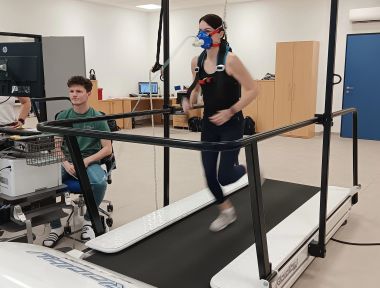Before you read this text, let me introduce myself: My name is Leticia and I am a 4th year medical student at University of Ostrava. As a future doctor, my main goal is to make a valuable contribution to people’s lives by educating them about health-related topics and helping understand more about what happens to their body. I hope you enjoy reading this text as much as I enjoyed writing it.
Sunscreen
It is a well-known fact that you should apply sunscreen in hotter months to protect your skin from the harmful rays of the sun, but as Winter approaches and the weather becomes cold and cloudy, it is natural to wonder whether you really need to wear sunscreen every day. It might appear to be logical at first, because after all, if it’s not sunny outside why should you bother? If you share this point of view, you might be increasing the likelihood of damaging your health. So, is sunscreen use necessary in colder months? If you’d like to know the answer to this question, keep reading.
Before talking about why sunscreen is important throughout the year, let’s first understand its science:
Sunscreen and UV rays
The main function of sunscreen is to protect your skin from the sun’s rays, more specifically ultraviolet radiation (UV) from the sun.
Ultraviolet A (think A for aging) has a longer wavelength and is capable of penetrating the deeper layers of the skin, breaking down collagen and elastin. Collagen and elastin are both proteins found in skin, which confer elasticity and firmness to the skin. Simply put, UVA can lead to the appearance of fine lines and wrinkles, thereby accelerating the aging process. Additionally, UVA can hyperactivate melanocytes (cells responsible for producing a dark pigment known as melanin), leading to uneven skin tone and hyperpigmentation. Ultraviolet B (think B for burn), on the other hand, has a shorter wavelength and penetrates the outermost layer of the skin, causing sunburn, and in some cases, sunburn.
While UVA and UVB rays have different effects on the skin, they are both harmful. UVA and UVB exposure without protection damages the DNA in skin cells, resulting in genetic defects, also known as mutations, that can lead to skin cancer and premature aging. UV rays can also harm the eyes causing cataracts and eyelid cancers.
Do I have to wear sunscreen during the Winter?
Even though the sun might not be shining as bright, it is still a source of ultraviolet radiation, so unfortunately, no matter how cloudy the day is or how thick the clouds appear, your body is still exposed to harmful radiation (UVA and UVB) emitted by the sun. Therefore, you should also protect your skin during the Winter months. Additionally, bear in mind that the snow also reflects UV rays, so they are closer to you than you think.
Types of sunscreen and what to look for when buying one
There are two main types of sunscreen: physical and chemical. Physical blockers act as a mirror, reflecting UV radiation from the sun and contain one of two main active ingredients, Zinc Oxide or Titanium Dioxide. Chemical blockers, like the name suggests, contain chemicals that absorb UV rays. Components such as Avobenzone or Octisalate are commonly seen in the composition of such sunscreens.
If you have reached this far and you want to purchase a sunscreen, here are two things you should be wary of when choosing a sun protector:
- Sun Protection Factor (SPF): This is a measurement of how much protection a sunscreen offers against sunburn. It allows consumers to compare the extent of sunburn protection provided by different sunscreens. The higher the value, the better. According to the American Academy of Dermatology Association, “Dermatologists recommend using a sunscreen with an SPF of at least 30, which blocks 97% of the sun’s UVB rays. Higher-number SPFs block more UVB rays, but no sunscreen can block 100% of the rays.”
- Broad spectrum coverage: In simple terms, a broad-spectrum sunscreen is one which offers protection against both UVA and UVB rays.
Now that you know the answer to “should I wear sunscreen in winter?”, you can make sure you protect your skin and health the right way. Hopefully, this post has helped you understand the science of sunscreen and ultraviolet radiation, and served as a reminder of the importance of not neglecting its use throughout the year, rain or shine.
References:
https://www.health.harvard.edu/staying-healthy/the-science-of-sunscreen
https://pubmed.ncbi.nlm.nih.gov/16113595/
https://www.cdc.gov/cancer/skin/basic_info/sun-safety.htm
https://www.uhsp.edu/news/archive/2020/science-of-sunscreen.html
https://www.cancer.org.au/cancer-information/causes-and-prevention/sun-safety/about-sunscreen


 3 min.
3 min. 


